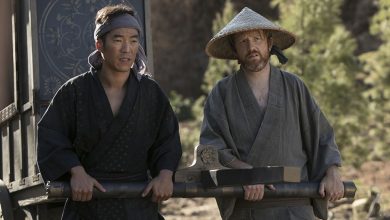Basmati Blues’ Seemingly Benign White Savior Complex
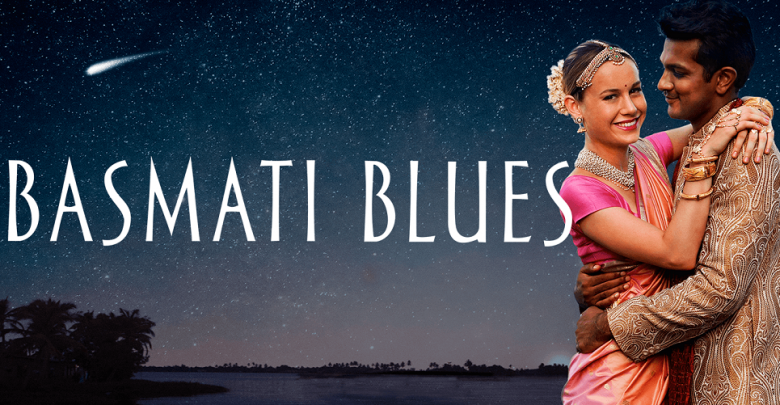
The initial outrage that greeted the trailer for Basmati Blues in November 2017 eventually died down. When the movie was finally released, other concerns took precedence over the white savior overtones that the trailer had foregrounded. When stacked against some of Hollywood’s more famous female white saviors, Brie Larson’s Dr. Linda Watt came across as being fairly benign. She was not actually “saving” Indian farmers from themselves, but from Mogil (an evil Monsanto-esque corporation) that was using her (unknowingly) to exploit them. She appeared to set foot in India with purely altruistic intentions and an open mind, seemingly without any preconceived notions about India and its culture. Life imitated art as producer Monique Caulfield reassured skeptics that her production team had similarly laudable artistic intentions in mind:
“This movie is not about an American going abroad to solve India’s problems. At its heart, this film is about two people who reach across cultures, fight against corporate greed, and find love. Basmati Blues is an ensemble musical romantic comedy. The film explores our responsibility for our actions and for each other, and attempts to do it in a disarming way, using music, comedy, and romance.”

Enter the female white savior. Clockwise from left: Dangerous Minds (1995), Freedom Writers (2007), The Help (2011), and The Blind Side (2009).
Beneath the feel-good messaging, airy song-and-dance numbers, and cartoonish corporate villainy, Basmati Blues does feature an objectionable subtext. Why, after all, is it entirely up to Linda to understand the grave implications in the fine print of the contracts that all these Indian farmers were signing? (They were not explicitly informed that the miraculous genetically-modified rice that they were agreeing to plant is seedless, forcing them to risk bankruptcy by having to buy new seeds every year). Once Linda blurts out the truth at a press conference, it is up to her (again) to lead the charge against Mogil.
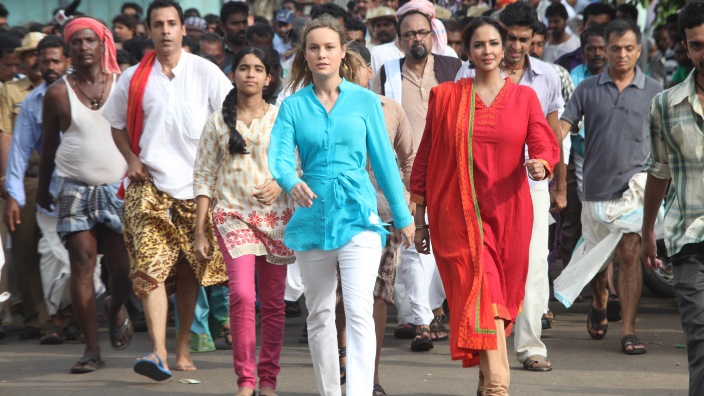
At one point, Linda bravely rides a white horse directly into a crowd of armed Indian policemen, who promptly make way for her (like the Red Sea before Moses?). In an interview with Vulture, Caulfied acknowledged her regret over this particular scene:
“The reason it’s a white horse is because in weddings in a lot of India, you ride in on a white horse. It was symbolic of romance and weddings and love. It just hit me so wrong that it got turned into this emblem of whiteness. Would I do that differently? I don’t know. It’s weird. I don’t know how to answer that.”
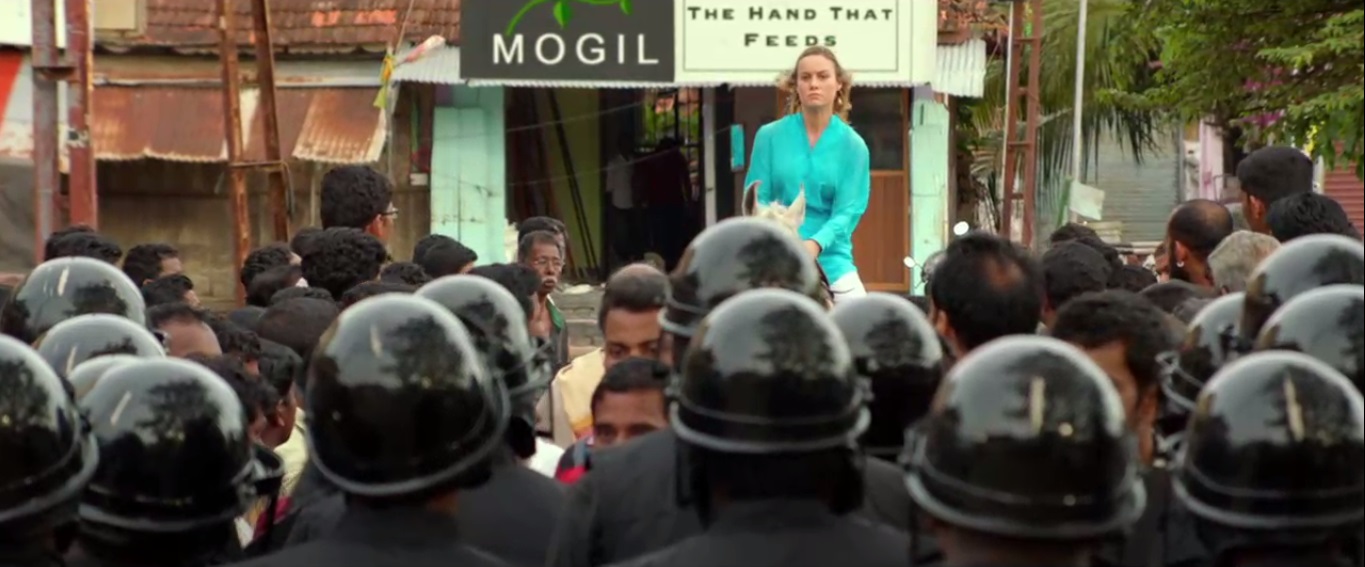
This heroic sequence proceeds with Linda single-handedly disrupting the train shipment of the problematic Mogil rice seeds. After that, she swoops in to save her co-protagonist and love interest Rajit (Utkarsh Ambudkar) from being run over by the train. (The trailer was apparently honest when it announced that “one woman will fight for justice” [italics added]).
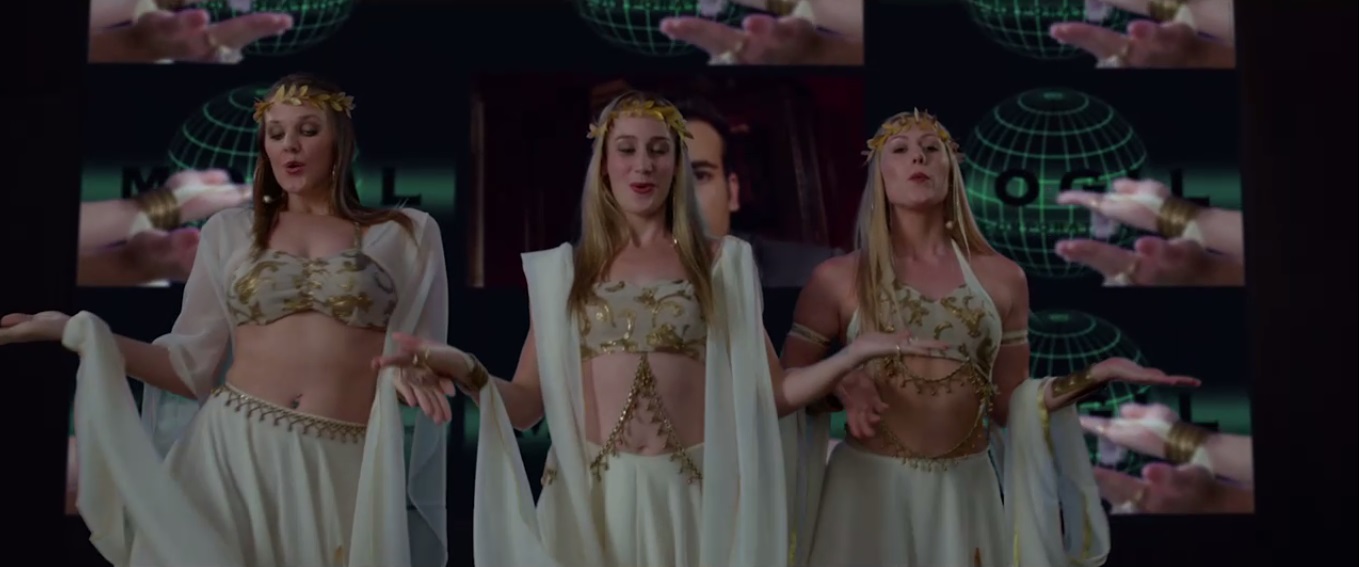
Caucasian dancers don white sarees for a satirical song-and-dance sequence.
Many Twitter users and TV critics were quick to point out the predictable cultural cliches in the movie (spicy food, feet-washing, overwhelming urban crowds, a mystical tea wallah, a goat at a train station, jokes about Indians eating monkeys, a Bollywood-style celebratory dance at the end). The film’s problematic characterization of its Indian roles (which are mostly played by Indian American actors) tends to be less scrutinized.
With the exception of Rajit (an agricultural science student with his own ideas on how to boost crop yields), every other Indian character practically flattens into a one-dimensional stereotype. Saahil Sehgal plays William J. Patel, a suave opportunist who decides to sacrifice the Indian farmer’s interests for cash incentives and the chance to work in New York City. William does have a last-minute change of heart about where his loyalty lies, but then simply tells the train conductor that the train will not be departing as planned. (The Mogil bosses then simply ignore him and get the train going anyway). Dalip Tahil plays the Police Chief who agrees to do William’s bidding with a simple bribe. Despite boasting that they have been “farming for over 5,000 years”, the Indian farmers are all too happy to naively place their livelihoods in the hands of an American corporation without doing their due diligence.
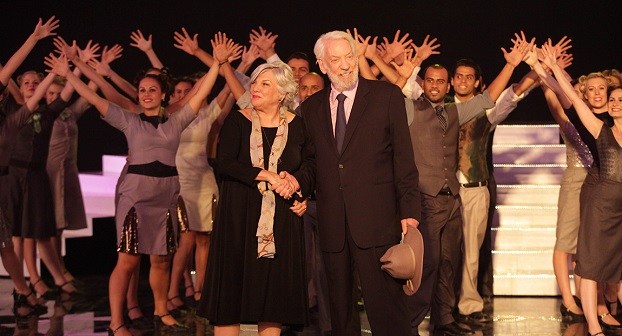
The movie’s representation of American corporate greed/neo-imperialism is too cartoonish to be taken seriously.
The husband-and-wife team of director Dan Baron and producer Monique Caulfield – both have defended the film as “homage” to Bollywood musicals – have claimed to be blindsided by the backlash. From their perspective, criticism about the white savior plot was antithetical to their intentions: “The irony of making a movie where the whole point is to explore our responsibility to each other as human beings, and the pitfalls of people in the West not taking responsibility for how their work affects other people, and then we’re the white-savior movie?” One could argue that the greater irony lies in how the film’s makers are refusing to take responsibility for perpetuating lazy stereotypes about an entire subcontinent.
-
OFFENDER: Red Baron Films
CATEGORY OF OFFENSE: Denigration ( Reinforces Stereotypes)
MEDIA TYPE: Movie
OFFENSE DATE: February 1, 2018



